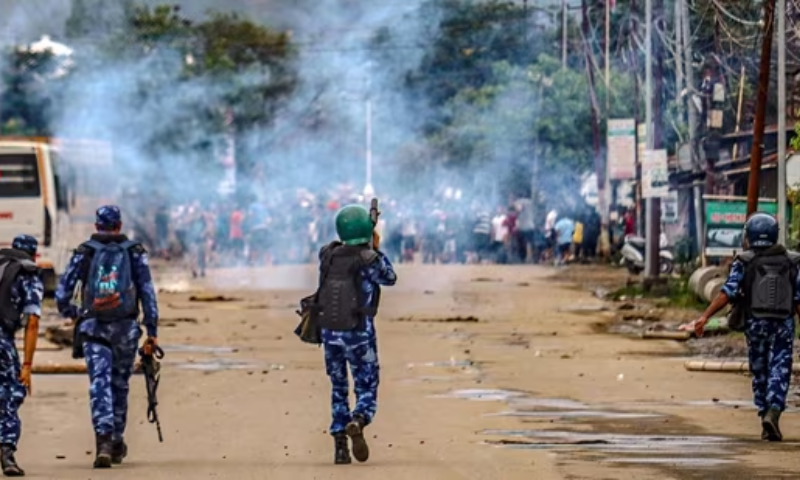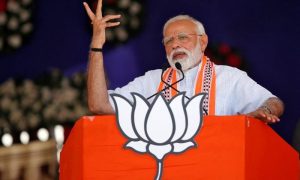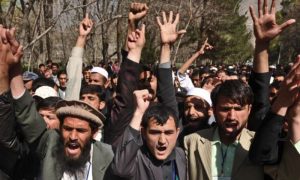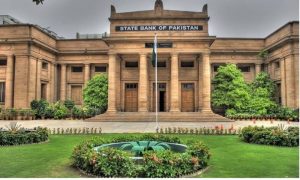In the intricate ambit of Indian politics, Hindu dominance has bettered the traditional pluralistic and secular society of India. This has sparked deep anxiety among stalwarts of opposing school of thought. The BJP’s stanch quest of cultural nationalism has been highly divisive. The vigorous exhibition of this ideology has converted Indian society where “cultural nationalism” takes antecedence, with all disregard to religious, ethnic, cultural, social and political diversity. The BJP’s emphasis on Hindutva politics has been a driving force behind communal unrest, raising serious trepidations about the party’s commitment to promoting a cohesive and inclusive society for all citizens, regardless of their faith or ethnicity.
BJP’s successive governments’ acts such as the construction of the Ram Mandir, the revocation of Article 370, Christian persecution in Manipur, intimidation of farmers in Punjab etcetera have played a significant role in worsening societal fissures and intensifying communal tensions. Under the façade of promoting Indian culture, the BJP has marginalized religious and ethnic minorities. The distress around different communities and regions is an apt example of such divisive political agenda of a ruling party of a country which always cherished its secular and pluralistic outlook. Despite the ostensible dominance, the BJP is not without its concerns. The party’s constant focus on inducing Hindutva ideology in Indian society raises potential concerns of bigotry and xenophobia, and it may impair regional tensions and deepen social dissections. An in-depth scrutiny of fissiparous sentiments in different parts of India, is thus, imperative.

Ladakh was deprived of its special privileges and powers with the abrogation of Article 370. Amid several resolutions being passed in the two hill councils, Ladakh is without an elected legislature. The demands presented in resolution passed by the Leh council include constitutional safeguards for the protection of land, employment guarantee, protection of culture, trade and environment and extension of provisions of the Constitution to the hill councils. A similar Kargil resolution is more categorical and has four demands: Statehood for Ladakh, Sixth Schedule status for Ladakh, two parliamentary seats in Ladakh instead of one, and job security and early job recruitment.
By influencing political discourse of Ladakh and Kargil, BJP emerged the majority party in 2019 Elections. BJP, with this political dominance, failed to meet justified demands of this region rather exerted its traditional machinations to accomplish its myopic agenda of Hindutva. Magsaysay Award winner Sonam Wangchuk’s recent assertions amply highlights the public sentiment of Hindutva driven BJP Central government, “Those who speak of the Sixth Schedule are being subject to harassment. Now there are lobbies in the mining industry who want to destroy Ladakh. We are only demanding our constitutional rights and we will not rest until it happens.” Concerns have also been raised about demographic shifts in Ladakh, since the region’s predominately tribal makeup may change as a result of outsiders relocating there. A change in border dynamics is indicated by India’s intention to revoke the India-Myanmar Free Movement Regime and the upcoming fence of the 1,643 km Indo-Myanmar border. Concerns are raised by these developments regarding the effects on border towns as well as the wider ramifications for bilateral relations.

Manipur, the north-eastern state of India, has been facing violence for last five months. It was in the month of May when the first clashes broke out in Manipur during a tribal solidarity march in the area. Intermittent violence — emerging from an ethnic conflict between Meitei and Kuki communities — has claimed over 175 lives and injuring more than 1,000. Living to its agenda of Hindu dominance, BJP government has consistently connived with Meitei Tribes to stifle predominant Kuki and Naga tribes. Recent curbs on poppy cultivation which has been an age-old agrarian occupation of Kuki tribes is yet another manifestation of RSS agenda of persecution of minorities. The situation of Manipur is simmering threat BJP government is confronted with.
A similar tension is witnessed in Haryana where farmers have announced a March onto Delhi. BJP government has consistently ignored Punjab’s farmers demand of paying Minimum Support Price (MSP) of their crops. On the contrary, all Hindu dominated regions are accommodated by the Central Government on political reasons. Indian government has initiated oppressive measures such as blocking of routes and internet services along with restricting fuel stations for supply to protestors. Such brutal steps have augmented existing feelings of alienation among the masses in Punjab.
These are few of many instances defining BJP’s RSS dominated face with a bigoted and intolerant mindset. An indifference to people’s religious, financial and cultural interests will have serious ramifications for India as a plural society. It is also crucial to point out that with these domestic challenges, India is fomenting a similar non-serious attitude across its borders. Evidences of recent Indian State sponsored killings of dissidents Sikh leaders across the globe is a blatant violation of all diplomatic norms and speak of India’s irresponsible and reckless attitude as a State.























